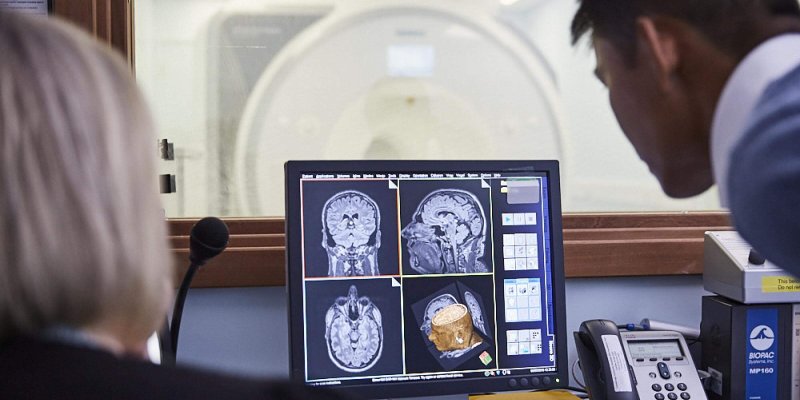In recent years, scientists and clinicians have focused their attention toward machine-learning artificial intelligence (AI) tools to help them diagnose Alzheimer’s risk and onset. Now, a team of investigators at Boston University School of Medicine (BUSM) may have developed just such an algorithm.
…
The BUSM researchers developed a computer algorithm based on AI that can accurately predict the risk for and diagnose Alzheimer’s disease using a combination of brain MRI, testing to measure cognitive impairment, along with data on age and gender. Findings from the new study were published recently in Brain.
…
An international team of expert neurologists was then asked to perform the task of detecting Alzheimer’s disease on the same set of cases. In this head-to-head comparison, the algorithm model performed slightly better than the average neurologist. They also showed that model-identified regions of high disease risk were highly aligned with autopsy reports of the brains on a few individuals who were deceased.
The research team was optimistic about the results of this study and noted that it has broad implications for expanding the use of neuroimaging data such as MRI scans to accurately detect the risk of Alzheimer’s disease at the point of care.































